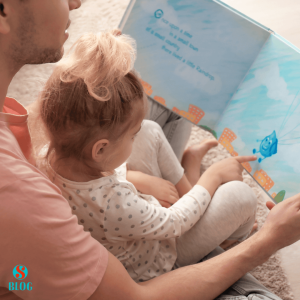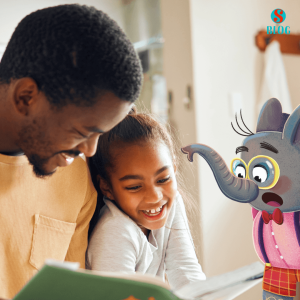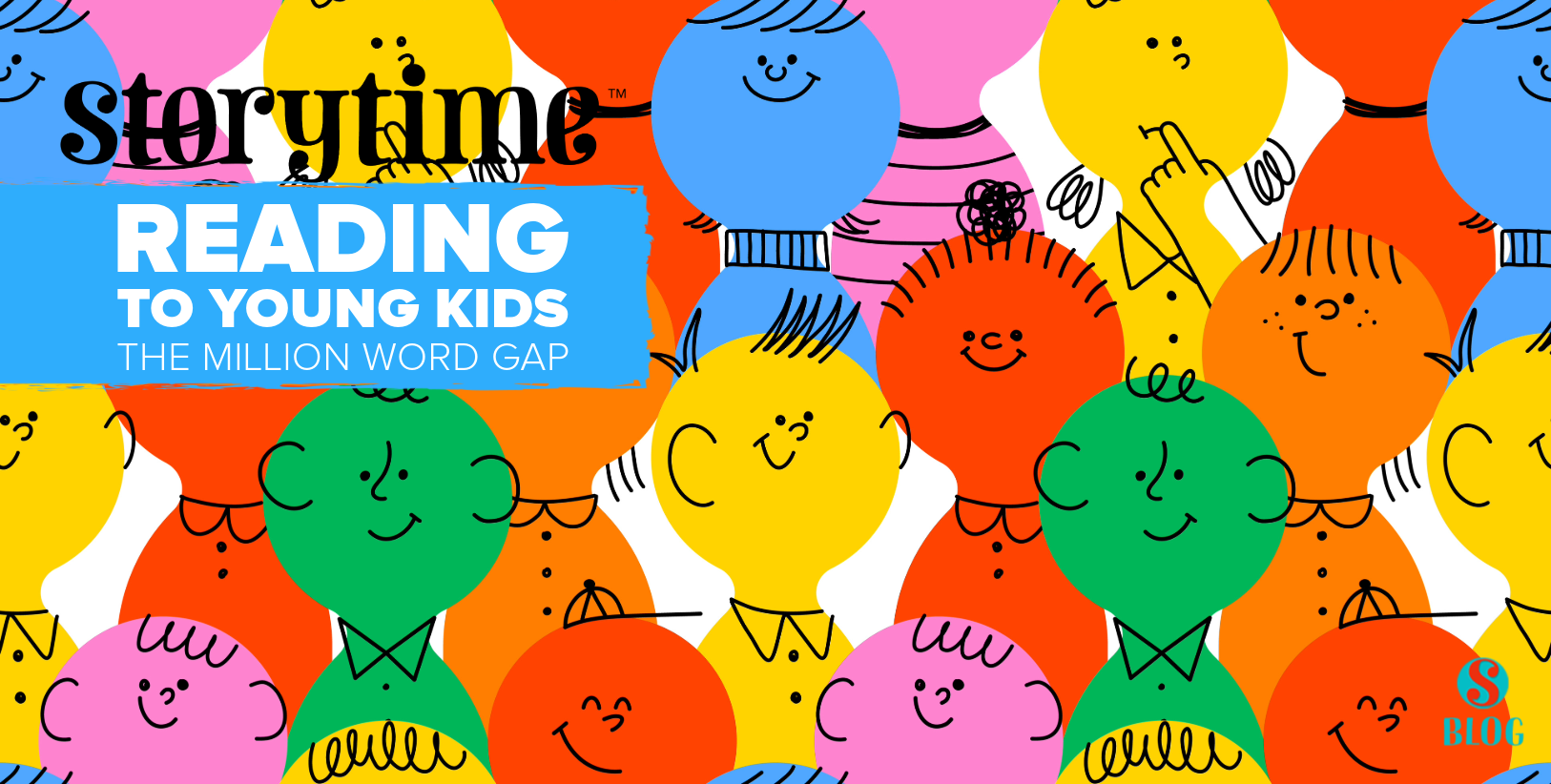Stories are fun, but they are also educational! According to a report by UNESCO, reading to young kids can familiarize them with sounds, words, and language and nurture literacy skills. It can also introduce them to the wonder of stories, and spark their imagination and curiosity.
A study by the Melbourne Institute of Applied Economic and Social Research found that daily reading to young children improves schooling outcomes, regardless of family background and home environment. The OECD Program for International Student Assessment (PISA) results also indicate a strong correlation between parents telling stories to children when they are little and reading achievement at age 15. These lucky kids perform one to two years above their peers!
 Another example of the effect that reading to kids can have is found in a study by Ohio State University. Children who were read up to five books a day before starting school had heard 1.4 million more words than those that had never been read to. This “million word gap” could help explain differences in vocabulary and reading development. Even being read just one book a day can lead to them being exposed to hundreds of thousands more words…..
Another example of the effect that reading to kids can have is found in a study by Ohio State University. Children who were read up to five books a day before starting school had heard 1.4 million more words than those that had never been read to. This “million word gap” could help explain differences in vocabulary and reading development. Even being read just one book a day can lead to them being exposed to hundreds of thousands more words…..
(Source: https://www.sciencedaily.com/releases/2019/04/190404074947.htm)
Here are four top reasons why reading to children from a young age is super important:
- Reading stories can familiarise little ones with sounds, words, and language! They will learn how words are pronounced, spelled, and used in different contexts. Children will also develop the ability to understand the structures and meanings of sentences, paragraphs, and texts and improve their listening, speaking, writing and comprehension skills.
- Reading stories can introduce your child to the value of books and stories! Stories can spark your child’s imagination and curiosity, and inspire them to explore new topics and ideas. Reading stories can also foster a love of learning, and motivate your child to seek more information and knowledge. Along the way, they will discover different cultures, perspectives, and experiences, and develop empathy and respect for others.
- Reading stories can promote your child’s brain development and ability to focus and concentrate! Tales stimulate your child’s brains and enhance their memory and cognitive skills. They will learn to pay attention and follow a sequence of events, which can improve their comprehension and problem-solving abilities. Reading stories can also help your child relax, which will improve their mental health and well-being.
- Reading stories can help your child build social, communication, and emotional skills. Stories can provide opportunities for your child to interact with you and others, and to express their thoughts, feelings, and opinions. Reading stories can also strengthen your bond with your child and create lasting memories.
So now we know how good of a habit it is, here are some top tips to get you started!
- Make reading a daily habit. You can start reading to your child from the day they are born, or even before! Make reading a routine by sharing a book or a story with your child every day, preferably at the same time and place. You can read before bedtime, after breakfast, or at any time that suits you and your child. Reading regularly can help your child develop good reading habits and attitudes.

- Read in front of your child. Let your child see you reading for pleasure. Your child will learn from your example and see that reading is fun and valuable. You can also talk to your child about what you are reading and why you enjoy it, and encourage them to share their own reading preferences and experiences.
- Create a reading space. Make sure your child has a comfortable and cosy place to read, with enough light and room to keep their books and stories. Having a reading space can help your child associate reading with relaxation and comfort, and make them look forward to reading time.
- Take trips to the library. The library is a great place to find new books and stories for your child, and to expose them to different genres and formats. Many libraries also have story hours or other literacy programs for children, where they can listen to stories, meet other readers, and participate in activities.
- Let your child choose what to read. Give your child some freedom in selecting their books and stories. You can guide them by suggesting some options or categories, but let them make the final decision. Your child will be more interested and engaged in reading something they picked themselves, and they will learn to trust their own judgment and taste.
- Find reading moments in everyday life. Reading is not only about books and stories. It is also about signs, labels, menus, instructions, and other texts that we encounter in our daily
 lives. You can help your child recognize and read these texts, and explain their purpose and meaning. This can help your child see the relevance and usefulness of reading, and apply their reading skills to different situations.
lives. You can help your child recognize and read these texts, and explain their purpose and meaning. This can help your child see the relevance and usefulness of reading, and apply their reading skills to different situations.
- Re-read favourite books and stories. Don’t worry if your child wants to read the same book or story over and over again. This is a normal and beneficial behaviour for young children. Re-reading can help your child remember and understand the story better, and notice new details and connections. Re-reading can also give your child a sense of familiarity and confidence, and make them feel proud of their reading ability.
- Learn more about how children read. You can support your child’s reading development by knowing what reading skills and strategies to expect at different ages and stages. You can also learn about the best ways to help your child with reading difficulties or challenges, and how to encourage and praise their reading efforts and achievements.
We hope these tips will encourage you to foster a love of reading in your little ones.
Our short stories are ideal for a bedtime routine and the illustrations in Storytime are engaging and full of magic, the perfect start for young readers to fall in love with stories. So pick up your favourite issue and let us know how the new reading routine goes. Happy story time, peeps!





